Three very long straight current carrying conductors are placed parallel to each other as shown in. The conductors A and C are fixed whereas conductors B is free to move. If the conductor B is pulled towards right through a very small distance r, then what is the net force acting on it and the angular frequency of the resulting oscillation.
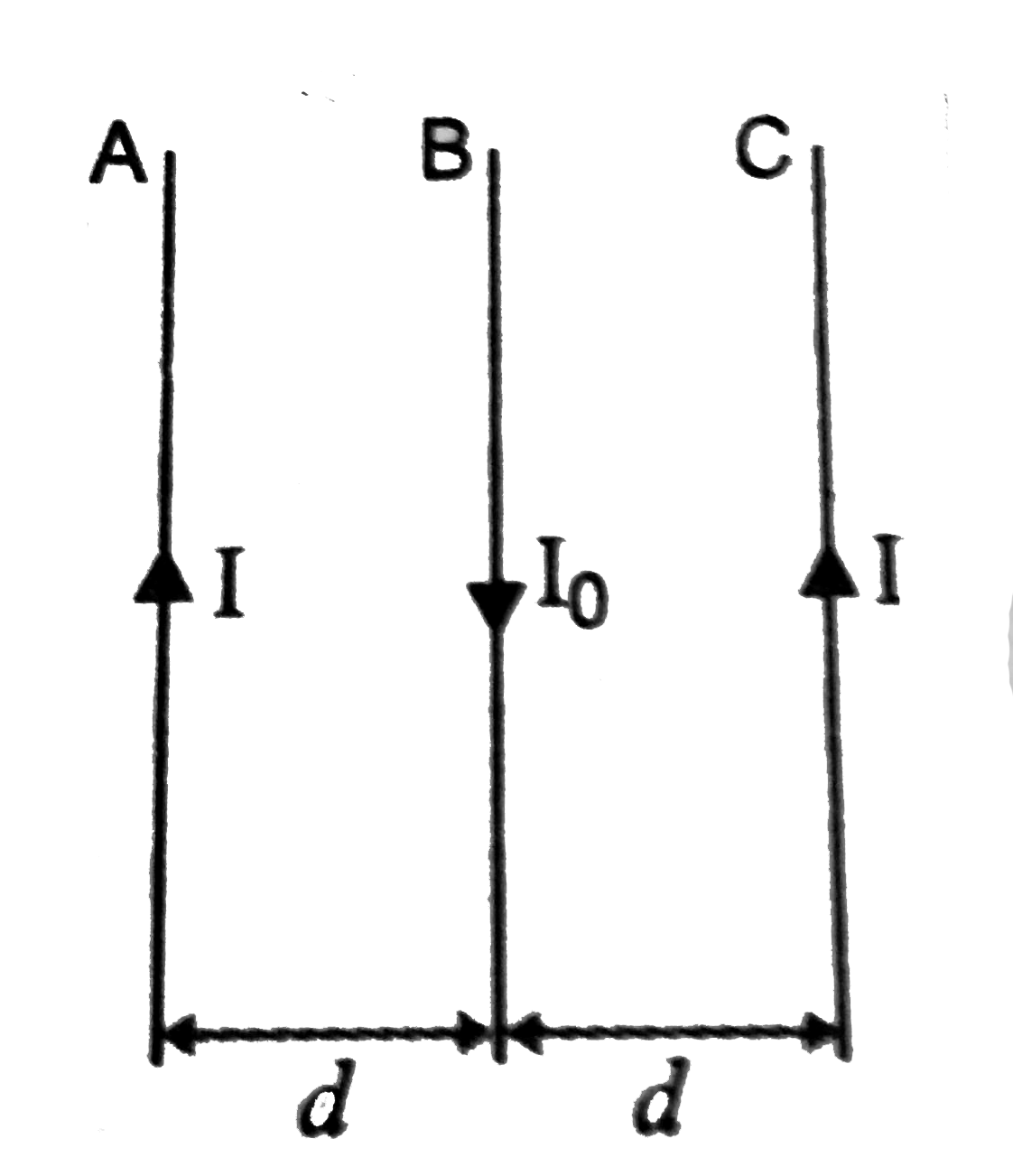
,
,
,
,
The net force acting on the conductor after it gets displaced through a very small distance r is given by
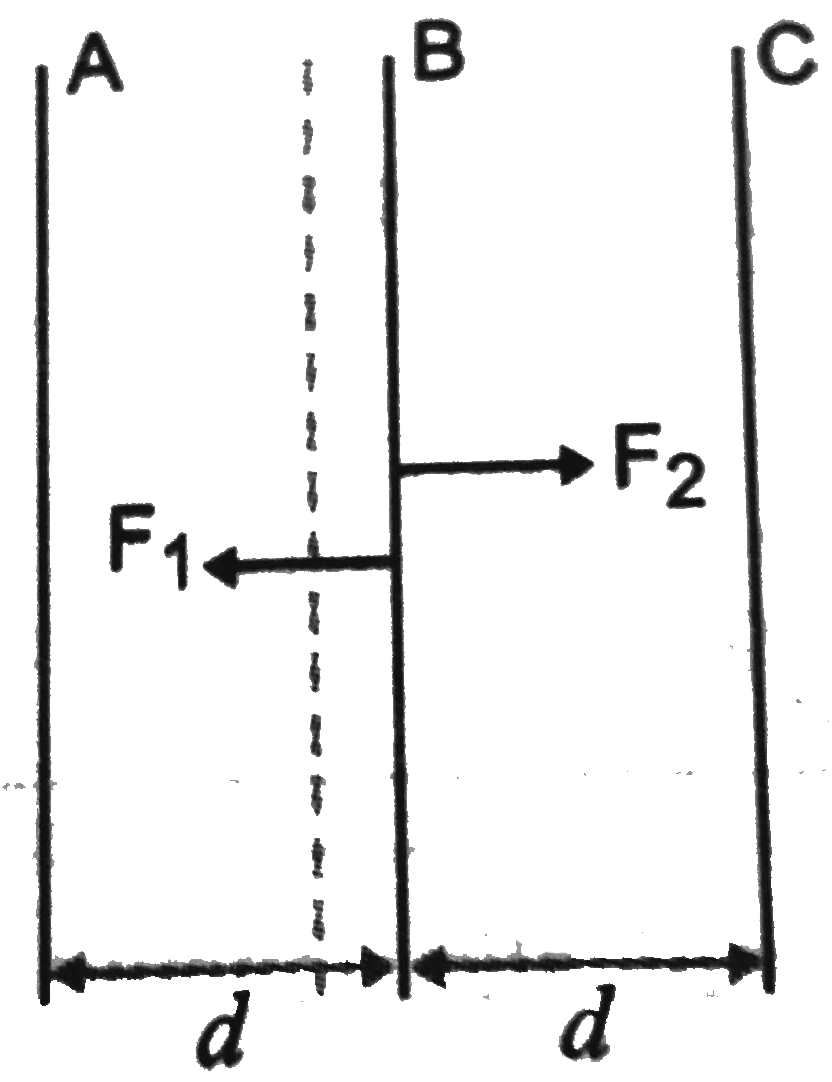
As it is given that , so
Now
Topper's Solved these Questions
- MAGNETIC EFFECT OF CURRENT AND MAGNETISMBook:PRADEEPChapter:MAGNETIC EFFECT OF CURRENT AND MAGNETISMExercise:Test Your Grip (a)
Explore 1 Video
- MAGNETIC EFFECT OF CURRENT AND MAGNETISMBook:PRADEEPChapter:MAGNETIC EFFECT OF CURRENT AND MAGNETISMExercise:Test Your Grip (c)
Explore 1 Video
- MAGNETIC EFFECT OF CURRENT AND MAGNETISMBook:PRADEEPChapter:MAGNETIC EFFECT OF CURRENT AND MAGNETISMExercise:Value Based Questions
Explore 2 Videos
- ELECTROSTATICSBook:PRADEEPChapter:ELECTROSTATICSExercise:ASSERTION-REASON TYPE QUESTIONS
Explore 2 Videos
- OPTICSBook:PRADEEPChapter:OPTICSExercise:Multiple choice questions
Explore 1 Video
Similar Questions
There straight current carrying conductors A,B and C are placed parallel and adjacent to each other by an electrician as shown in the figure. Then determine the direction of resultant force acting on the wire B .
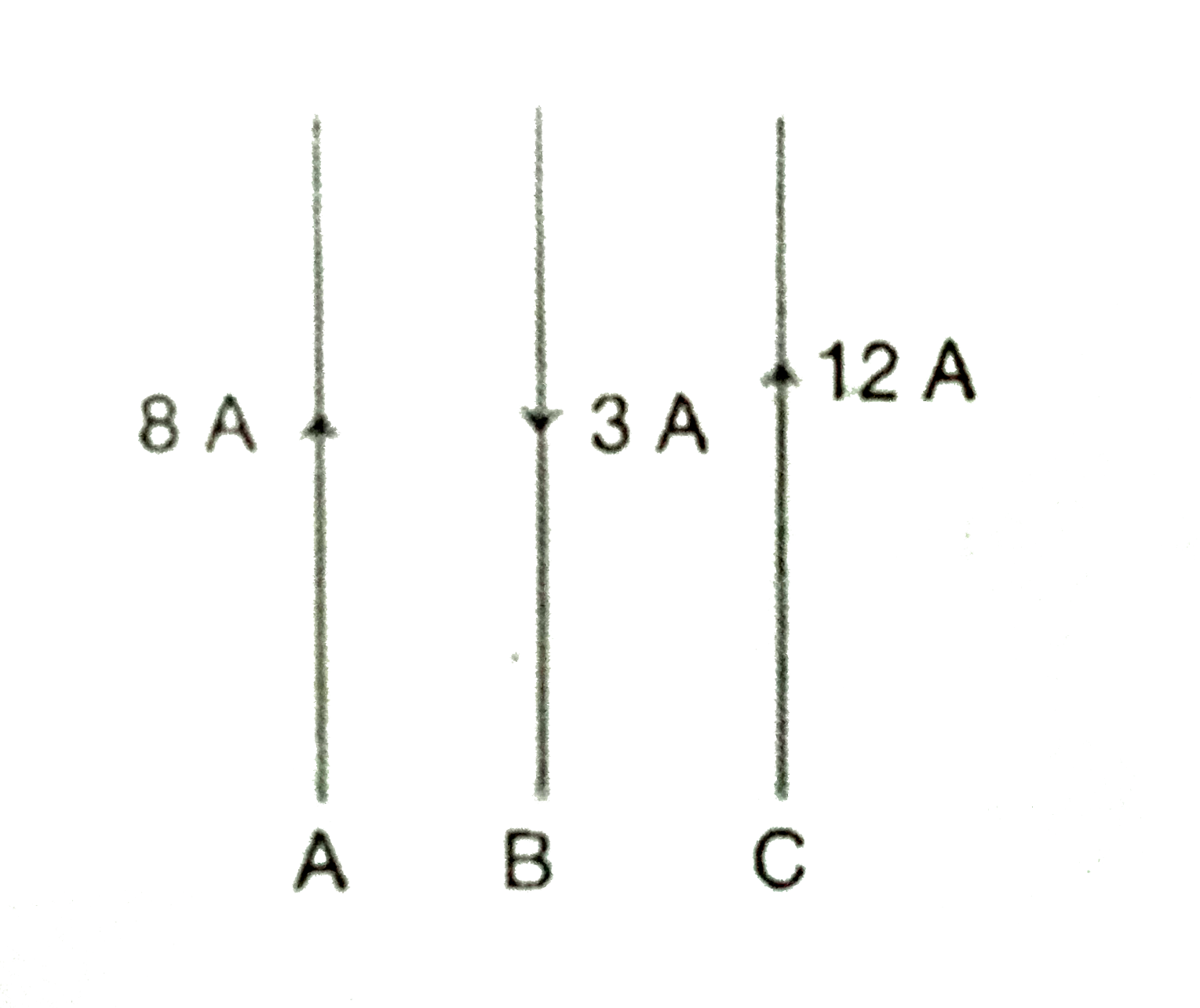
View SolutionA very long straight conductor and an isosceles triangular conductor lie in a plane and are separated from each other as shown in the figure. If a = 10 cm, b = 20 cm, and h = 10 cm find the coefficient of mutual induction.
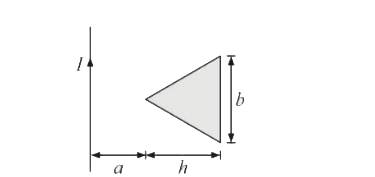
View Solution
Knowledge Check
Two long straight conductors are held parallel to each other 7cm apart. The conductors carry currents of 9A and 16A in opposite directions. The distance of neutral point from the conductor carrying 16A current is
A9cmB16cmC25cmD63/25cmA straight current carrying conductor is placed in such a way that the current in the conductor flows in the direction out of the plane of the paper The conductor is placed between two poles of two magnets as shown The conductor will experience a force in the direction towards
 .APBQCRDS
.APBQCRDSThree long straight conductors are arranged parallel to each other in the same plane and carryin currents of 1A,2A and3A all in the same direction. The distance betweent eh first two conductros is x and the distance between the second and third conductorsy. If the middle conductor is in equilibrium, the ratio x:y is
A1:3B3:1C1:√3D√3:1
Two long straight parallel current conductors are kept at a distance d from each other in air. The direction of current in both the conductors is the same. Find the magnitude and direction of the force between them. Hence, define one ampere.
View SolutionTwo long and straight conductors, placed parallel to each other are separated by 10 cm, carrying current of 2A and 4 A respectively in opposite direction. The force per unit length exerted by each conductor on the other
View SolutionThree very long straight conductors are arranged parallel to each other in a plane and have resistances in the ration 1:2:3 . They are connected in parallel to a battery of negligible internal resistance such that the currents in all three wires are in the same direction. The distance between the first two conductors is x and the distance between the second and third conductors is y. If the middle conductors is in equilibrium, the ratio x:y is
View SolutionThree long straight conductors are arranged parallel to each other in the same plane and carryin currents of 1A,2A and3A all in the same direction. The distance betweent eh first two conductros is x and the distance between the second and third conductorsy. If the middle conductor is in equilibrium, the ratio x:y is
View SolutionA conductor AB of length l carrying current i is placed perpendicular to a long straight conductor carrying a current I as shown. Force on AB will be
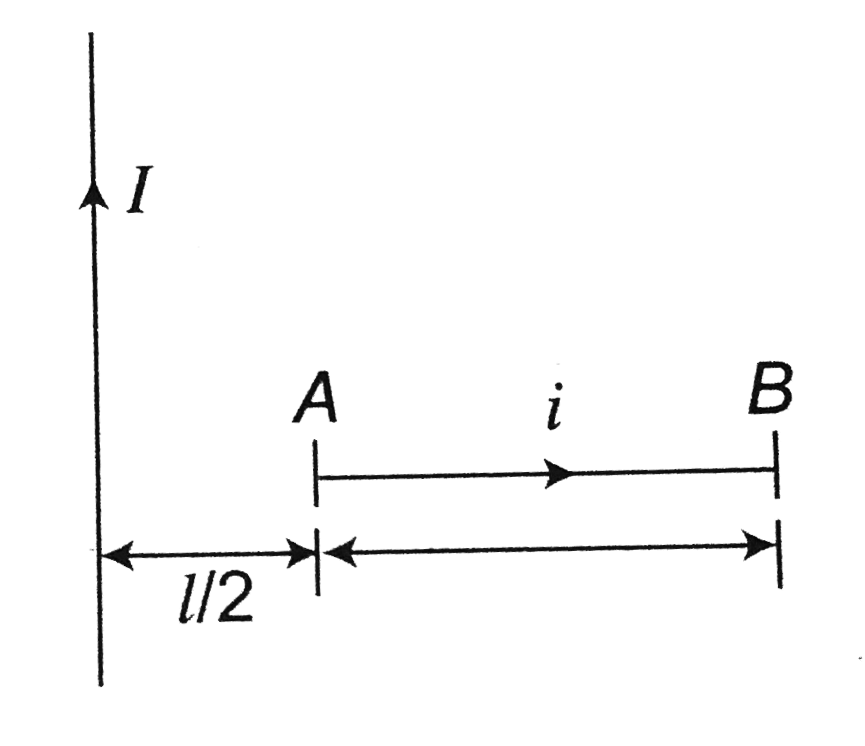
View Solution